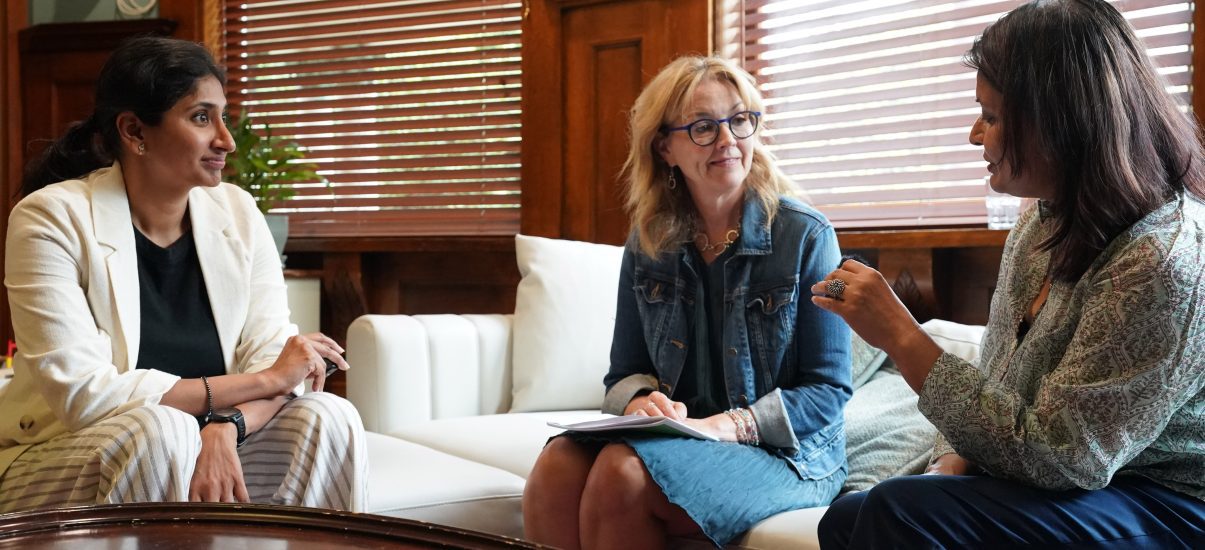
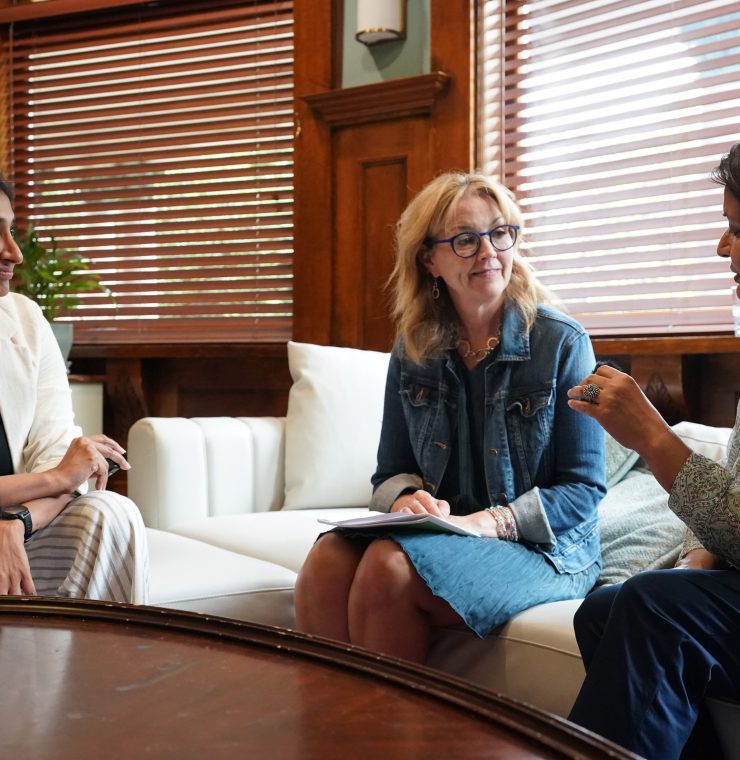
Two Worlds, one mission: expanding the reach of children’s palliative care
On July 18, Canuck Place had the great privilege of welcoming two globally respected leaders in pediatric palliative care, Dr. Spandana Rayala, Associate Director of Two Worlds Cancer Collaboration, and Dr. Gayatri Palat, Founding Member of the Pain Relief and Palliative Care Society in Hyderabad India, as part of our Global Health Speaker Series. Visiting from Kuwait and India, respectively, both physicians brought not only their deep expertise but also a spirit of humility, curiosity, and collaboration that left our clinical team inspired and grateful.
The Canuck Place Global Health Speaker Series is an initiative that fosters international collaboration and knowledge exchange in pediatric palliative care (PPC). By welcoming clinicians and specialists from around the world, the program creates space for learning across diverse healthcare settings, helping to strengthen global capacity and improve the quality of care for children with serious illnesses, wherever they live.
Doctors Rayala and Palat’s visit highlighted something remarkable: though our systems, cultures, and resources may differ, the core challenges and values in PPC are strikingly similar. Throughout their presentations and conversations with Canuck Place clinicians, Dr. Rayala and Dr. Palat emphasized bidirectional learning—a concept that resonated deeply. Our team learned from their experiences in India and other countries; while they and their team members were also learning from our clinicians—and we all learn from the families we provide care to.
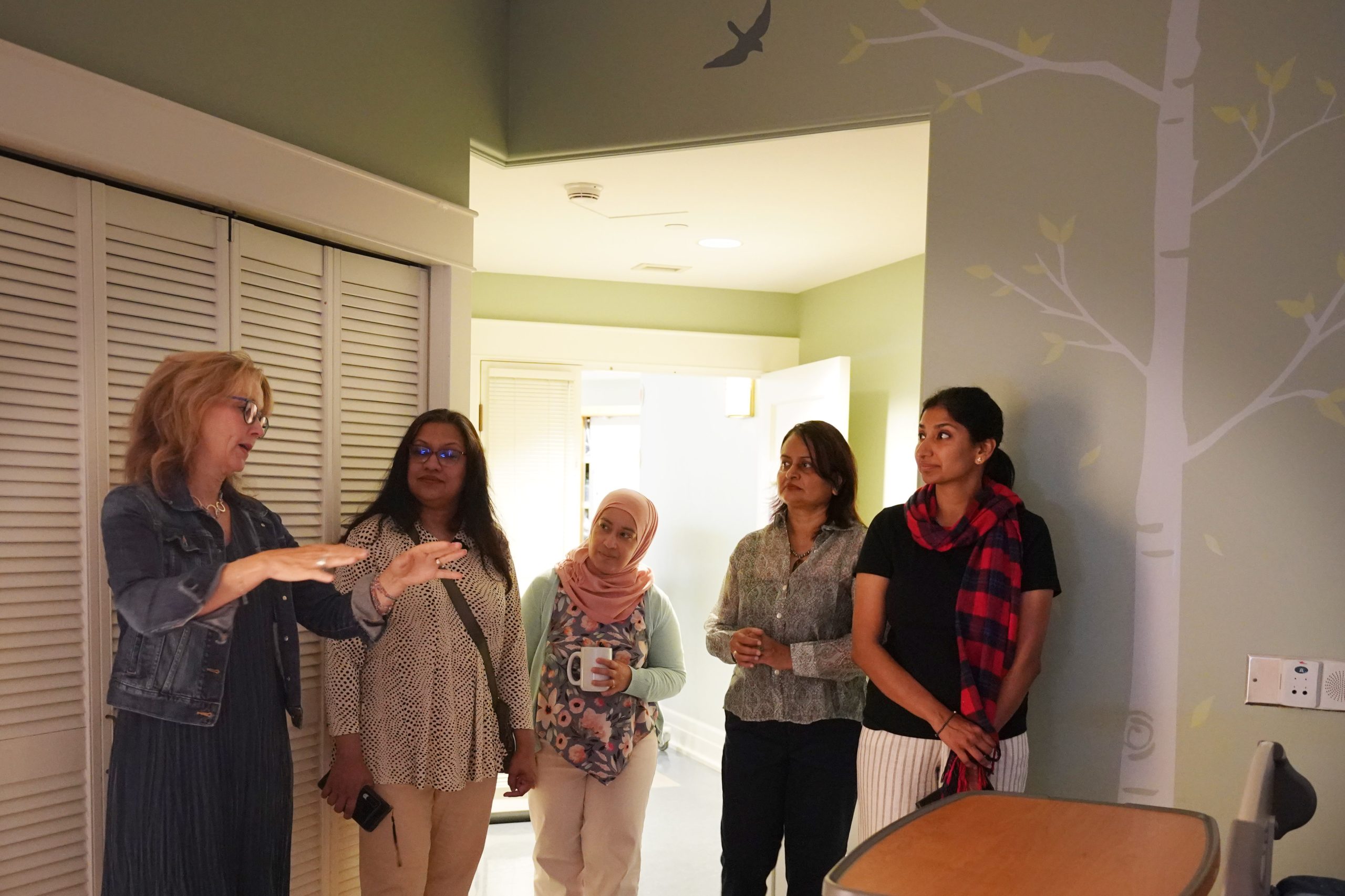
This collaboration creates a meaningful exchange that transcends geography and always returns to our collective priority of caring for children with serious illness and the families who love them. In partnership and collaboration with TWCC, five Canuck Place clinicians collectively donate over 200 hours of their time each year to teach and mentor on line and in person.
The most powerful takeaways from the dynamic discussions were the similarities in our experiences—the commonality in our “Two Worlds.” Whether delivering PPC in rural India, Nepal, Kuwait, or British Columbia and the Yukon, the needs are shared: families require care where they are—in hospice, in hospitals, or at home.
The logistical barriers of distance, limited infrastructure, funding, and internet access persist in India and also create barriers to care for remote Indigenous communities here at home. But compassion mixed with determination finds a way. There was an unspoken understanding during Drs Rayala and Palat’s visit—heads nodded collectively acknowledging that despite the disparities in resources, we face similar emotional and systemic challenges. For example, both Canuck Place and our global colleagues must navigate the societal discomfort around pediatric end-of-life care.
As Dr. Palat pointed out, curative care is easier to fund by conveying “success stories” to donors, governments, and even healthcare providers. At Canuck Place, where we continually advocate for recognition of the essential nature of PPC, it’s not about giving up hope, it’s about expanding what compassionate care means, to include comfort, dignity, and love. Everyone present agreed that no child should ever be in pain. Canuck Place Research Initiative Director, Dr. Hal Siden, added that “palliative care is simply good medical care.”
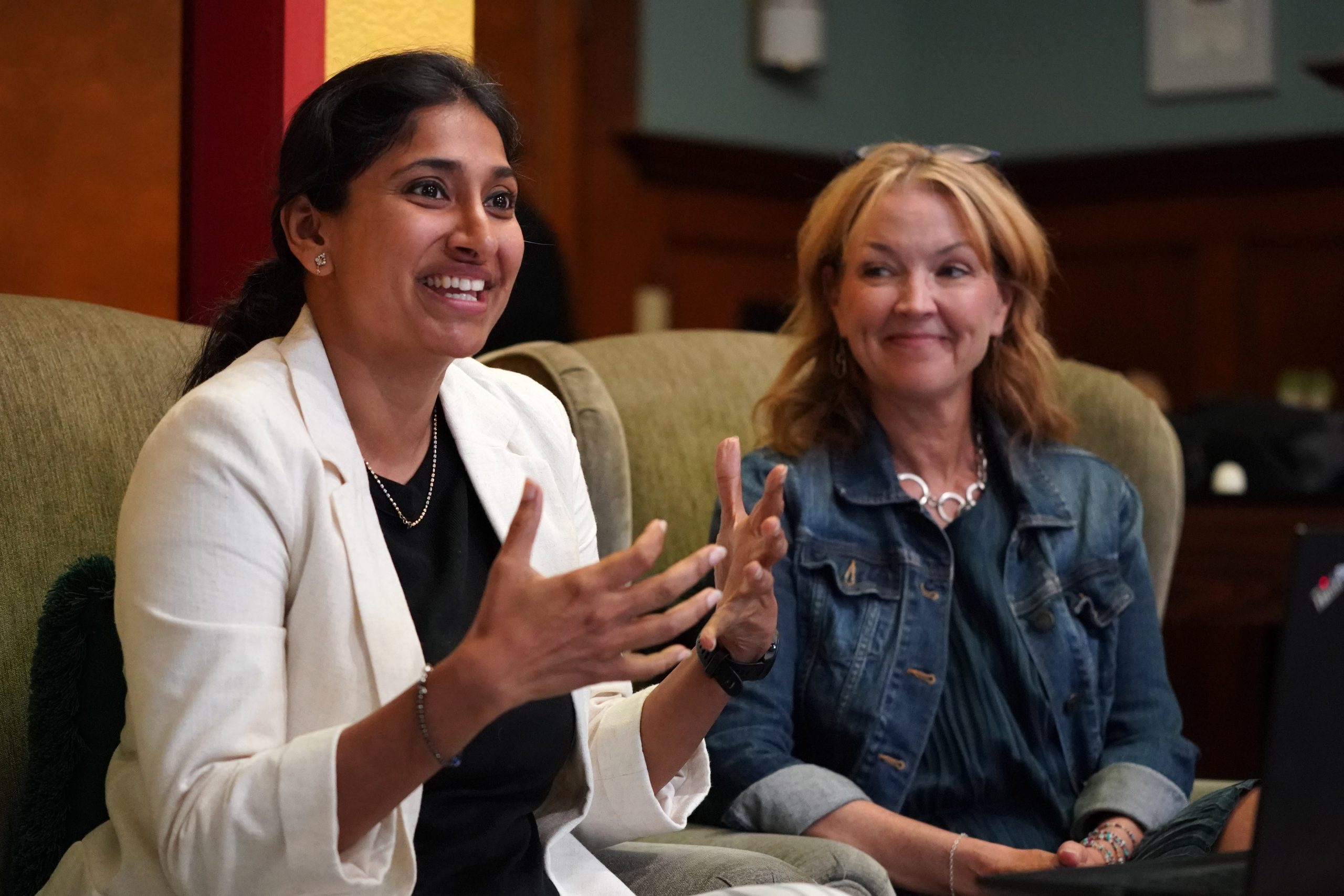
A shared priority between our teams is building sustainable models of care—continuums that allow children and families to feel connected to a program for their entire health pathway, not just a one-time service. Whether in Hyderabad or Vancouver, when families feel held throughout their journey, from diagnosis through to bereavement (and sometimes even before birth), the impact is transformational. Both teams reflected on how perinatal palliative care—supporting families when a diagnosis is made in utero—deeply shapes outcomes and emotional resilience. It’s common ground that’s often overlooked, but crucial.
Another standout moment came when Dr. Rayala spoke about the importance of family involvement in both care and research. The desire of families to share their stories is universal. At Canuck Place, we know from working in collaboration with our Family & Patient Engagement Advisors, that storytelling is a vital form of knowledge exchange. Our visiting scholars echoed this—parents in India want to contribute to research, be heard, and advocate for others. There’s incredible power in those voices, and a growing global momentum to honour them as equal partners in advancing care.
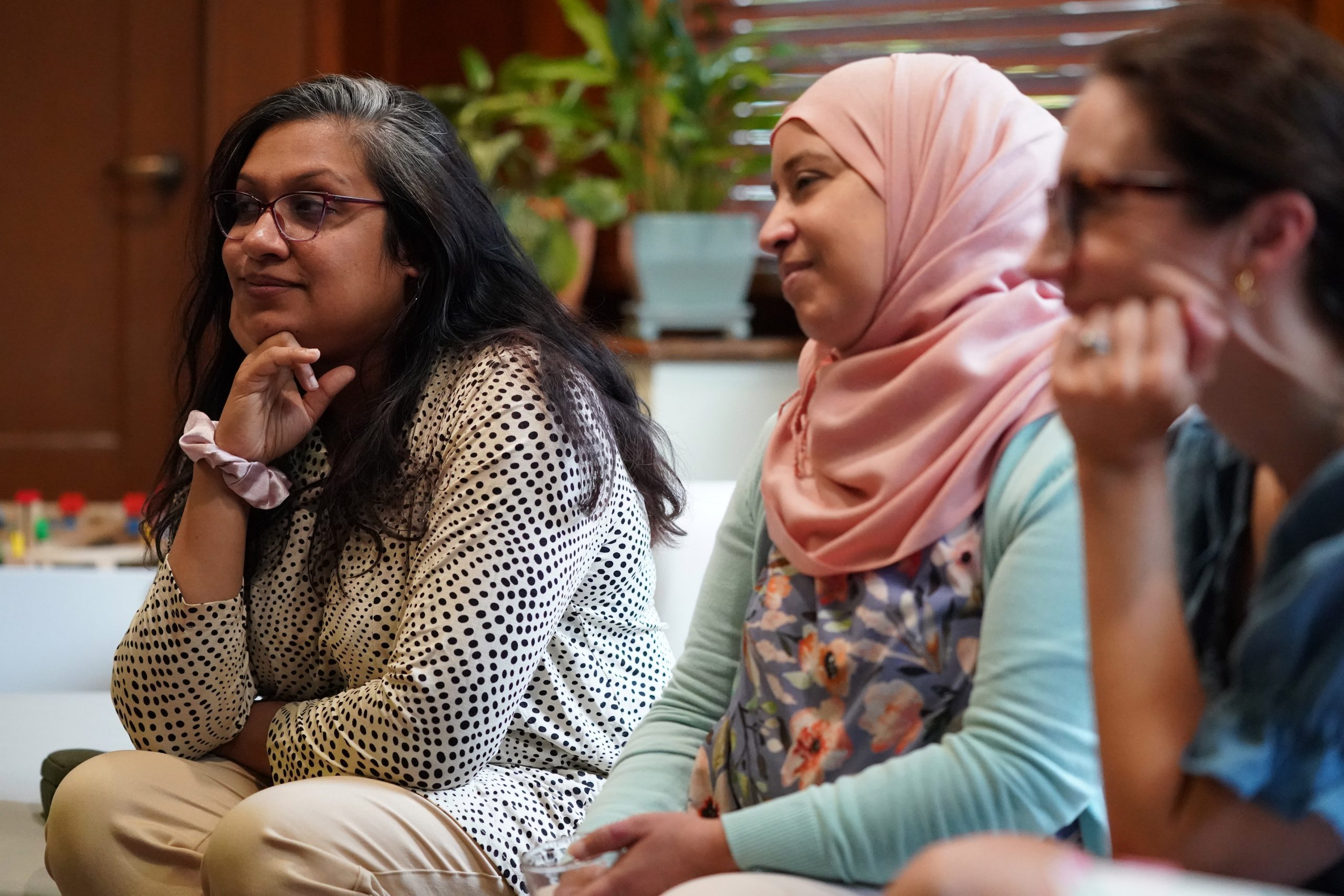
Cultural nuance also played a central role in the dialogue. How do we balance traditions, values, and rituals while delivering care that’s evidence-informed and family-centered? Once again, our similarities emerged. Whether in Canada or India, PPC teams must skillfully navigate cultural differences with respect and empathy. It’s not always easy, but it is essential. And we continue to learn as we progress.
As we reflect on this special visit, Canuck Place feels deeply thankful for the connections forged and the knowledge shared. Dr. Rayala and Dr. Palat remind us that progress in PPC is not bound by borders—it’s bound by shared humanity. At the heart of it all, children and families everywhere deserve compassionate care that meets them where they are, honours their needs, and ensures that no child suffers unnecessarily.